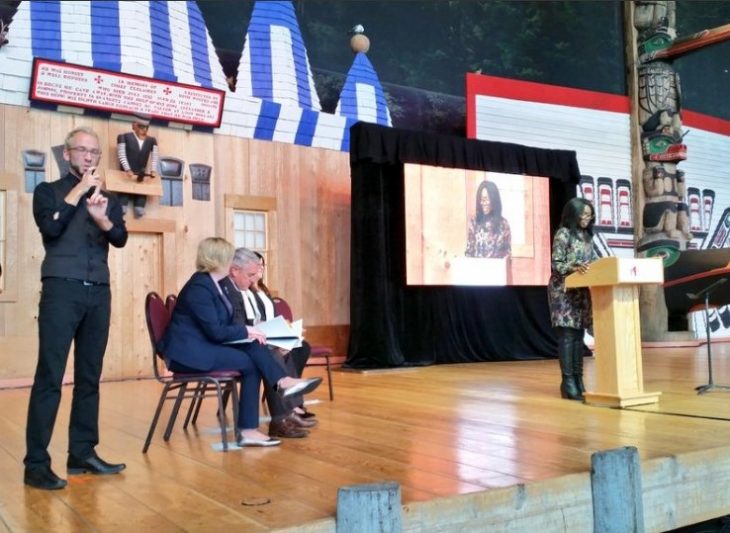
OTTAWA–GATINEAU – Canadians who are deaf, hard of hearing or speech impaired now have a new way to communicate thanks to Wednesday’s launch of the new national video relay service (VRS).
This made-for-Canada service enhances the ability of Canadian’s whose first language is American Sign Language (ASL) or Langue des signes québécoise (LSQ) to conduct calls via video relay service with hearing people through a professional ASL or LSQ interpreter.
VRS calls are placed using a high-speed Internet connection through a computer, tablet or smartphone and an operator facilitates the conversation between the two parties by relaying the conversation between sign language and spoken language. The service will be available seven days a week, including holidays.
It is estimated that there will be some 20,000 users of the VRS and people wishing to use the service must first register with the Canadian Administrator of VRS (CAV). Registered customers will receive a 10-digit phone number associated with their account to make and receive calls. There is no charge to use VRS, however, some calls, like international calls, will require the customer to pay international calling rates.
“This is a historic day for Canada's Deaf and Hard of Hearing community”, said Sue Decker, executive director and CEO, Canadian Administrator of VRS (CAV), in a statement. “This service is amazing. It is a tool for empowerment that will change people's lives."
“The implementation of the Video Relay Service will have a concrete and positive impact on the lives of Canadians who are Deaf, hard of hearing or speech impaired”, added CRTC chair Jean-Pierre Blais. “The CRTC appreciates all the efforts put forth to ensure the success of this new service. This initiative illustrates strongly Canada’s vision for an inclusive society which values equality of opportunity.”
Telus was deeply involved in the development of the service, which included an 18-month trial in B.C. and Alberta in 2011. Following that pilot, the company recommended the CRTC consider making the service available for all Canadians who are deaf, hard of hearing, and speech impaired because participants in the pilot said it was much better than traditional text-based systems.
Photo of VRS launch event courtesy of Accessible Media Inc. @AccessibleMedia



